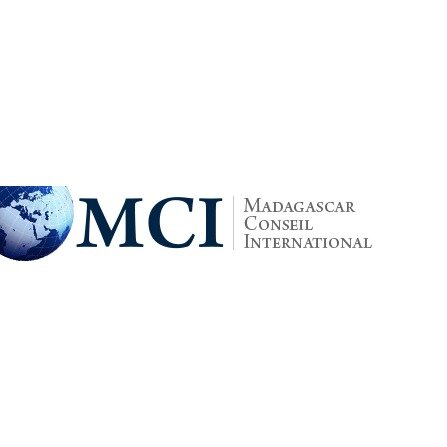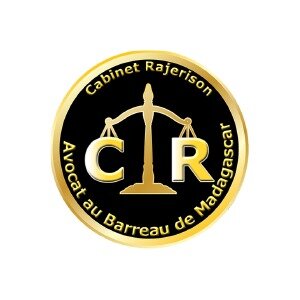Best Art & Cultural Property Law Lawyers in Madagascar
Share your needs with us, get contacted by law firms.
Free. Takes 2 min.
Or refine your search by selecting a city:
List of the best lawyers in Madagascar
About Art & Cultural Property Law in Madagascar
Art & Cultural Property Law in Madagascar is focused on the preservation, protection, and regulation of cultural heritage and tangible cultural expressions. This legal field encompasses a wide array of issues, including the illicit trade of artifacts, the management of cultural heritage sites, the protection of intangible cultural expressions, and the return of cultural properties. Madagascar, known for its rich cultural heritage and unique biodiversity, aims to safeguard its cultural patrimony through various laws and international agreements.
Why You May Need a Lawyer
Several situations may necessitate seeking legal advice in the realm of Art & Cultural Property Law in Madagascar:
- Acquisition and Ownership Disputes: Legal assistance may be required when disputes arise over the legitimate ownership of art and cultural objects.
- Export and Import Regulations: Compliance with local and international laws concerning the export and import of cultural goods may necessitate legal counsel.
- Restitution and Repatriation: If seeking the return of cultural properties from overseas, legal expertise is essential.
- Protection of Cultural Heritage Sites: Lawyers may assist in legal matters related to the conservation and management of heritage sites.
- Intellectual Property Issues: Protecting traditional knowledge and cultural expressions can involve complex legal challenges.
Local Laws Overview
Madagascar's legal framework for protecting cultural property includes specific provisions under national laws and adherence to international conventions.
- National Cultural Heritage Law: This law provides the structure for protecting and managing national heritage sites and cultural artifacts.
- 1999 International Convention: Madagascar is a signatory to the 1999 UNIDROIT Convention on Stolen or Illegally Exported Cultural Objects, which supports the restitution of cultural property.
- CITES Regulations: The country follows CITES regulations to protect against the illegal trade of endangered species and associated cultural artifacts.
Frequently Asked Questions
What is considered cultural property under Madagascan law?
Cultural property includes objects, structures, and sites deemed significant for their historical, artistic, or archaeological value.
Are there restrictions on exporting cultural artifacts from Madagascar?
Yes, the export of certain cultural artifacts is regulated, and permits are required to prevent illicit trade.
How can I verify the authenticity of a piece of art?
Verification can be done through provenance research, expert appraisal, and consulting with legal professionals specialized in art law.
What steps can I take if a cultural property is stolen?
Report the theft to local authorities, consult with a lawyer, and possibly notify international bodies if the item could be moved across borders.
Who manages cultural heritage sites in Madagascar?
Management is typically carried out by the national government in collaboration with provincial authorities and local communities.
What international agreements protect Madagascan cultural heritage?
Key agreements include UNESCO conventions, the UNIDROIT Convention, and bilateral treaties with countries for heritage protection.
What legal recourse is available for repatriating cultural objects?
Legal recourse involves utilizing national laws and international conventions focused on restitution and repatriation.
Can traditional cultural expressions be legally protected?
Yes, through intellectual property protections adapted for cultural expressions, albeit with unique challenges.
What are the penalties for violating cultural property laws in Madagascar?
Penalties may include fines, imprisonment, or both, depending on the severity of the crime.
How can I contribute to the protection of cultural heritage?
Support local conservation efforts, report suspicious activities, and comply with heritage conservation guidelines.
Additional Resources
Here are some resources and organizations that can be helpful:
- Ministry of Culture and Communication: Oversees the implementation and enforcement of cultural heritage laws.
- National Museum of Madagascar: Provides information and education about the country’s cultural heritage.
- International Council of Museums (ICOM): Offers guidelines and support for heritage protection globally.
- UNESCO Madagascar: Works on educational and cultural programs in line with international standards and conventions.
Next Steps
If you need legal assistance in Art & Cultural Property Law, consider the following steps:
- Consult a Lawyer: Seek a legal expert specializing in cultural property law to understand your rights and obligations.
- Gather Relevant Documentation: Prepare all related documentation, including provenance records and permits.
- Contact Relevant Authorities: Reach out to local authorities or cultural bodies for guidance and to report violations.
- Stay Informed: Keep updated on changes in laws and international agreements related to cultural property.
By staying informed and seeking expert legal counsel, you can navigate the complexities of Art & Cultural Property Law in Madagascar effectively.
Lawzana helps you find the best lawyers and law firms in Madagascar through a curated and pre-screened list of qualified legal professionals. Our platform offers rankings and detailed profiles of attorneys and law firms, allowing you to compare based on practice areas, including Art & Cultural Property Law, experience, and client feedback.
Each profile includes a description of the firm's areas of practice, client reviews, team members and partners, year of establishment, spoken languages, office locations, contact information, social media presence, and any published articles or resources. Most firms on our platform speak English and are experienced in both local and international legal matters.
Get a quote from top-rated law firms in Madagascar — quickly, securely, and without unnecessary hassle.
Disclaimer:
The information provided on this page is for general informational purposes only and does not constitute legal advice. While we strive to ensure the accuracy and relevance of the content, legal information may change over time, and interpretations of the law can vary. You should always consult with a qualified legal professional for advice specific to your situation.
We disclaim all liability for actions taken or not taken based on the content of this page. If you believe any information is incorrect or outdated, please contact us, and we will review and update it where appropriate.
Browse art & cultural property law law firms by city in Madagascar
Refine your search by selecting a city.











